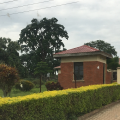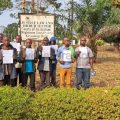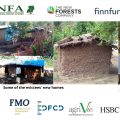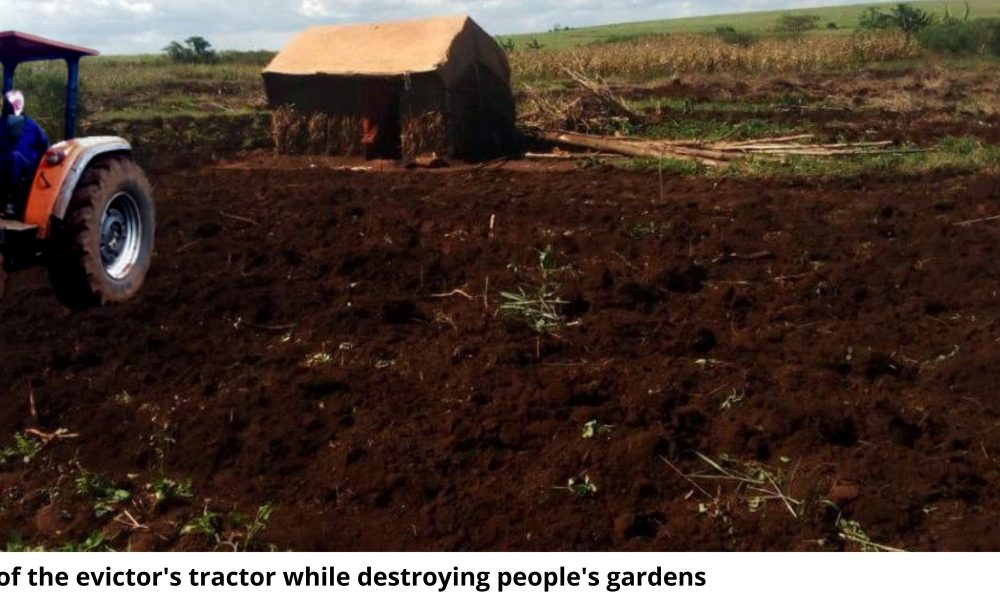By Witness Radio Team
As foreign agribusinesses take over Kiryandongo communities’ fertile land, other local investors are also eyeing the remaining land occupied by the poor families in the southwestern district of Uganda to grab their land.
A community of over 300 smallholder farmers in Ranch 22, Nyamuntende village in Kiryandongo district is being evicted by a local businessman Maseruka Robert who claims ownership of the land some have lived on for decades. Mr. Maseruka connived with some leaders in the community to grab land from the poor.
The evictions that started in August this year have caused the displacement of over 50 households so far on land measuring over 2000 acres without consultations or being fairly compensated. Crops belonging to residents, and houses were razed.
When evictions by multinationals soared in Uganda, the community acted swiftly to protect the interest on the land and avert a land grab. And in 2015, they applied for a lease of 49 years on the land from the Kiryandongo district land board which was granted to them.
However, unbeknownst to them, schemers would take advantage of this opportunity to grab their land. Earlier, the residents whose land is located on Ranch 22 Block 8 Bunyoro Ranching Scheme entrusted Wilson Sikhama, Ochema Richard, and a few other community members as their leaders in 2016 during the requisition of the land.
According to the residents, initially, the application processes unfolded as they had planned, however, Sikhama and Ochema allegedly connived with other people not known to the community to drop the names of some of the community members whom they had entrusted and replaced them with Julius Isingoma, Gerald Tumusiime, Messanger Gabriel Wabwire, Musokota William John and Simon Mwesige.
Residents further added that the land was titled in the names of the seven people who excluded the villagers. In 2019, when the community expected the location forms of the land per person, they understood that the land they had acquired was sold to one Maseruka Robert without their notification by Sikhama and the group.
In the same year 2019, the community ran to court seeking its intervention to regain the ownership of their land. The community was led by one of their own Mbabazi Samuel. In a blink of an eye, Mbabazi allegedly reached an agreement with the aforementioned group. On the 22nd of October 2020, he allegedly sold the said land to a group of people (Mr. Sikhama’s group) at One Hundred Million Shillings (100,000,000 equivalent to USD 26,483.79) without the approval of the community he represented.
After completion of the sale, the group of schemers sold the land to Maseruka who is now evicting the community.
In our interview with Maseruka, he failed to explain how he acquired the land but, insisted that he wanted the community to leave his land. “These people should leave my land because I want to use it, this is my land.” He maintained.
Some of the evictees whose houses were destroyed had relocated to their neighbors’ homes for fear of what would befall them. A 42-year-old widow and a mother of 10 said Maseruka’s accomplices destroyed her house leaving her destitute.
“These people wanted to give me 700,000/= (185.39) for the 15 acres of my land. When I resisted, they began destroying what they found including my house. They told me the money they were giving me was enough for me to vacate.” She explained.
The chairperson of the affected community, Mushija Caleb said his people are being forcefully evicted because they refused the peanuts given to them as compensation. He reiterated that his people don’t want to leave their land.
“They should not think of compensation irrespective of the amounts they are willing to offer because people are not interested in surrendering their land,” he added.
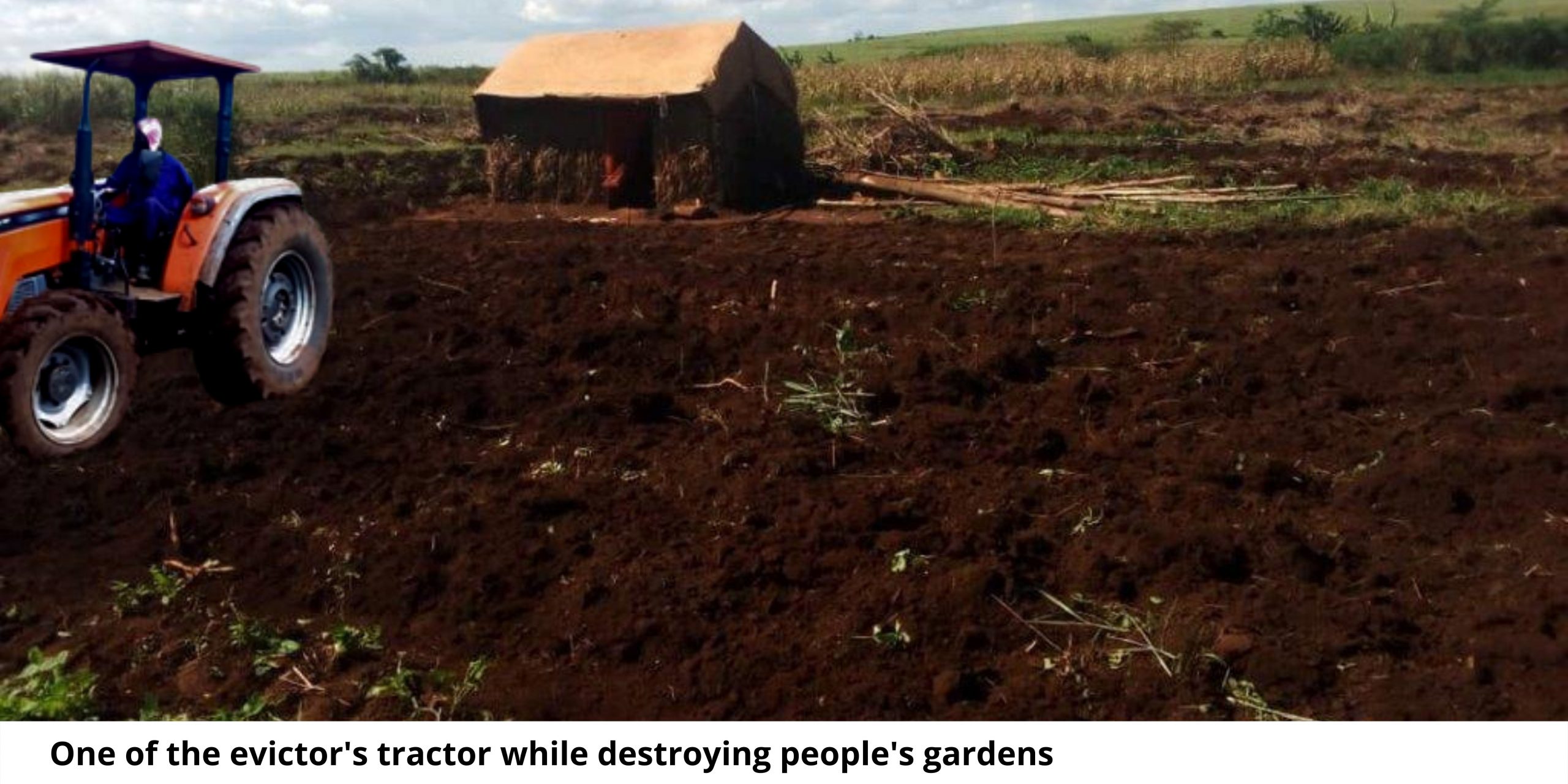

 MEDIA FOR CHANGE NETWORK1 week ago
MEDIA FOR CHANGE NETWORK1 week ago
 MEDIA FOR CHANGE NETWORK2 weeks ago
MEDIA FOR CHANGE NETWORK2 weeks ago
 MEDIA FOR CHANGE NETWORK1 week ago
MEDIA FOR CHANGE NETWORK1 week ago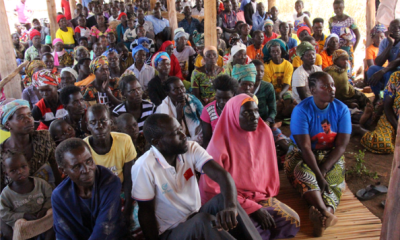
 MEDIA FOR CHANGE NETWORK1 week ago
MEDIA FOR CHANGE NETWORK1 week ago
 MEDIA FOR CHANGE NETWORK2 weeks ago
MEDIA FOR CHANGE NETWORK2 weeks ago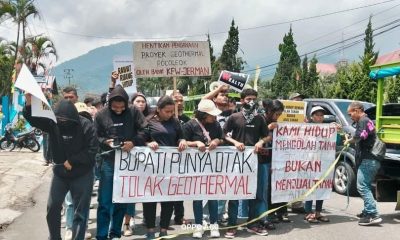
 MEDIA FOR CHANGE NETWORK12 hours ago
MEDIA FOR CHANGE NETWORK12 hours ago
